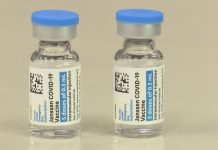
A new blood test for pregnant women detects with 75-80 percent accuracy whether their pregnancies will end in premature birth.
In a new study published in Science, researchers led by a group at Stanford University report the first steps toward a blood test that can predict which pregnancies are most likely to result in early births.
Stephen Quake, professor of bioengineering and applied physics at Stanford, and his team analyzed the roughly 20,000 genes in the human genome in a group of 38 women who were at higher risk for premature delivery. Of those women, 23 ended up delivering when their babies were full term, while 15 delivered earlier than expected. Quake compared the activity of genes found in the mother’s blood, which included the proteins, enzymes and other products made by the mother’s genes, placental genes and fetal genes. The team identified seven genes whose activity differed among the two groups of women.
“This gives us a starting point to understand the biology of what is going on in premature births,” says Quake.
It’s not clear yet exactly how the activity of the genes affects fetal development and pregnancy, but the seven genes all came from the mother. Much more research is needed before a blood test becomes a reality, but “we now know where to invest a bunch of effort,” he says.
In 2008, Quake’s team also used similar methods to develop a blood test for Down syndrome, a chromosomal disorder that leads to delayed development. He hopes that the current results lead to not just a better understanding of what factors contribute to premature births, but also treatments that may prevent prematurity. Early birth is the leading cause of infant deaths in the U.S.
Quake was also able to study another group of 31 Danish women who provided blood samples each week throughout their full-term pregnancies. His team identified nine genes that originated in the placenta that helped to predict exactly how old the growing fetus was. Currently, ultrasound can predict gestational age, but it is most accurate only during the first trimester; many women, especially in the developing world, don’t have access to prenatal care and may not be able to take advantage of such screening. A blood test that’s useful at more advanced stages of pregnancy could help women to better assess when they are going to deliver.
“This is about saving lives,” says Quake. “There is no test for prematurity right now, and this could be a huge help to address a big unmet need.”













